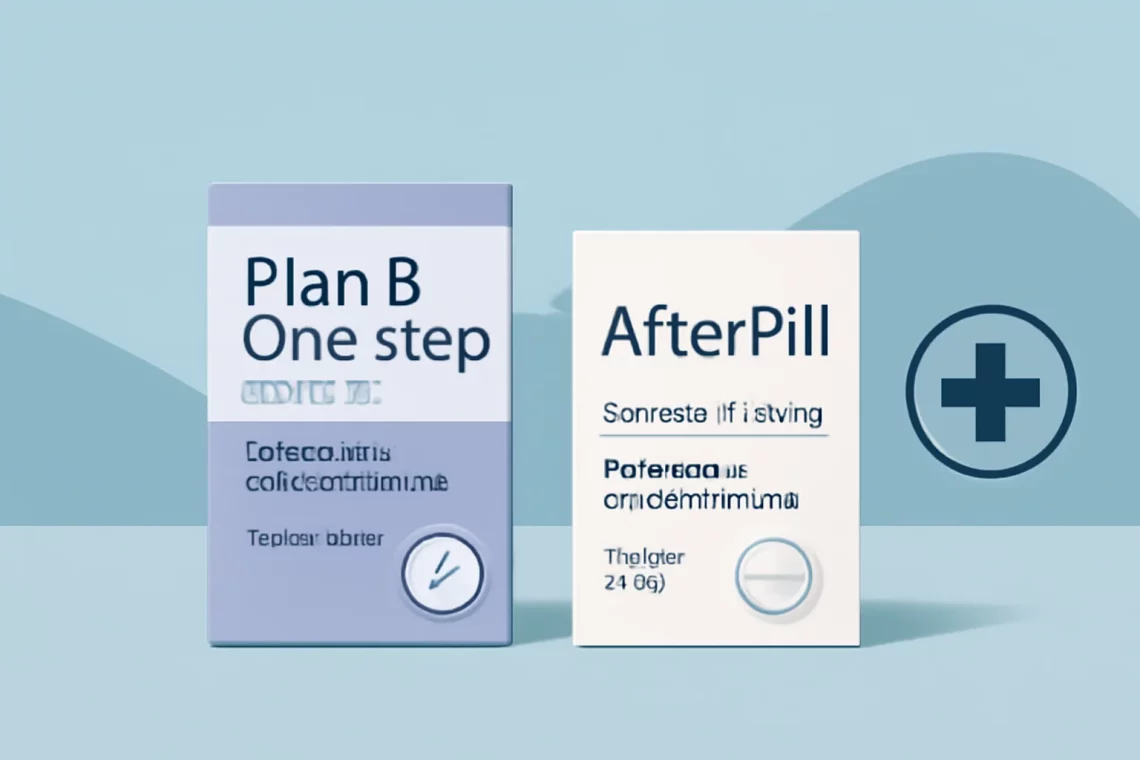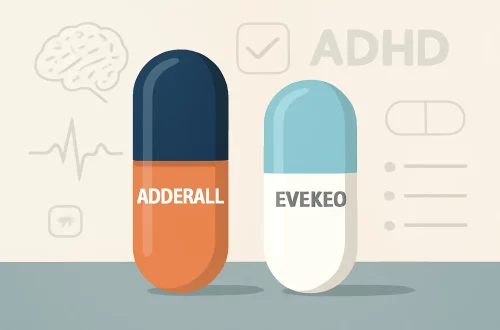-
Plan B vs Ella: Understanding the Differences in Emergency Contraception
In today’s world, the importance of emergency contraception cannot be overstated. With a variety of options available, individuals often find themselves weighing the pros and cons of different methods. Among these options, Plan B and Ella have emerged as two of the most recognized names in the realm of post-coital contraception. Each of these medications serves a crucial role in preventing unintended pregnancies, yet they operate through different mechanisms and have distinct characteristics. Understanding these differences is essential for making informed decisions about sexual health. As society becomes increasingly aware of reproductive rights and health, discussions surrounding emergency contraception have gained momentum. Many are seeking clarity regarding the effectiveness, accessibility,…
-
Plan B vs AfterPill: Comparing Emergency Contraceptive Options
In today’s fast-paced world, the topic of emergency contraception has gained significant attention. With the rising awareness of reproductive health and women’s rights, it’s essential to understand the options available for preventing unintended pregnancies. Among these options, Plan B and AfterPill are two of the most commonly discussed emergency contraceptive pills. These medications have sparked numerous conversations about their effectiveness, accessibility, and the implications of their use. Emergency contraception serves as a safety net for individuals who may have experienced contraceptive failure or unprotected intercourse. Understanding the differences between various options empowers individuals to make informed choices, especially in critical situations. As the conversation surrounding reproductive health continues to evolve,…
-
Can You Have Sex with a Menstrual Disc? What You Need to Know
Menstruation can often be a complicated topic, surrounded by myths, misconceptions, and cultural taboos. For many, it signifies not just a natural biological process but also a time of introspection and self-care. The menstrual cycle is unique to every individual, and how one chooses to manage it can vary widely. In recent years, menstrual products have evolved significantly, offering alternatives that align with modern lifestyles and preferences. Among these, menstrual discs have gained popularity for their innovative design and comfort. These products are designed to be worn internally, collecting menstrual fluid rather than absorbing it, which can provide a different experience compared to traditional pads and tampons. As more individuals…
-
Can a Dog Get Fixed While in Heat? Important Considerations Explained
When considering the health and well-being of our beloved canine companions, many pet owners encounter the question of spaying or neutering. This procedure not only helps control the pet population but also contributes to the overall health of dogs. However, for female dogs, a critical aspect to consider is the timing of the surgery. Specifically, many owners wonder whether a dog can be spayed while in heat. Understanding a dog’s heat cycle is essential to making informed decisions. During this time, dogs experience hormonal changes that can affect their behavior and physical condition. The heat cycle consists of several stages, including proestrus, estrus, and diestrus, each with distinct characteristics. Owners…
-
How Long After Neutering a Dog Is Testosterone Completely Gone?
Neutering is a significant decision for pet owners, often undertaken for various reasons including population control, behavioral management, and health benefits. This surgical procedure, which involves the removal of the reproductive organs, leads to a substantial shift in a dog’s hormonal balance. One of the most critical hormones affected by neutering is testosterone, which plays a pivotal role in a dog’s behavior, physical characteristics, and overall health. Understanding the implications of this hormonal change is essential for responsible pet ownership. After neutering, many pet owners notice behavioral changes in their dogs, such as reduced aggression or a decrease in roaming tendencies. However, the timeline for the complete disappearance of testosterone…
-
Understanding Female Dog Sexual Behavior and Reproductive Health
Understanding the sexual behavior and reproductive health of female dogs is essential for pet owners and breeders alike. Dogs, like many other animals, display a range of behaviors during their reproductive cycle that can be perplexing to those unfamiliar with canine biology. This complexity is influenced by various factors, including age, breed, and hormonal fluctuations. Female dogs undergo distinct phases in their reproductive cycle, commonly referred to as the estrous cycle. This cycle not only triggers physical changes but also influences behavior, making it crucial for owners to understand what to expect. From the onset of their first heat to the challenges of pregnancy and beyond, the reproductive journey of…
-
Understanding Dog Vaginal Hyperplasia: Causes, Symptoms, and Treatment
Understanding Dog Vaginal Hyperplasia: Causes, Symptoms, and Treatment Vaginal hyperplasia in dogs is a condition that can cause concern for pet owners and veterinarians alike. This health issue primarily affects female dogs and is characterized by an abnormal proliferation of the vaginal tissue. While it may not be a commonly discussed topic, understanding its implications is crucial for ensuring the well-being of your furry friend. The condition can manifest in various ways, and its underlying causes can range from hormonal imbalances to genetic predispositions. As dogs age or go through specific life stages, their bodies undergo numerous changes. Some of these changes can lead to health issues that may require…
-
Can UTI Affect Your Period and Menstrual Cycle?
Urinary tract infections (UTIs) are common among women, affecting millions each year. These infections occur when harmful bacteria invade the urinary system, leading to symptoms such as frequent urination, pain, and discomfort. While the primary concern for those suffering from a UTI is often the immediate discomfort and inconvenience, it is essential to recognize that such infections can also have broader implications on overall health, including potential effects on menstrual health. The menstrual cycle is a complex interplay of hormones and physiological changes in a woman’s body. It is influenced by various factors including stress, diet, and underlying health conditions. Understanding the relationship between urinary tract infections and menstrual cycles…
-
The Ideal Age to Spay or Neuter Your Kitten for Optimal Health
The decision to spay or neuter a kitten is one that many pet owners face, often accompanied by a mixture of emotions and concerns. This process, which involves surgical intervention, is not merely a matter of population control; it also has significant implications for the health and behavior of your feline companion. Kittens, with their playful and curious nature, are at a critical stage of development, making the timing of this procedure particularly important. As responsible pet owners, understanding the benefits and potential risks associated with spaying and neutering can lead to informed decisions that promote the well-being of your pet. The age at which a kitten is spayed or…
-
Essential Tips for Maintaining a Healthy Cervix and Overall Wellness
Maintaining a healthy cervix is an essential aspect of overall wellness for individuals with a cervix. The cervix, a narrow passage connecting the uterus and the vagina, plays a crucial role in reproductive health. Yet, it often remains overlooked in discussions about women’s health. Factors like lifestyle, diet, and regular medical check-ups significantly influence cervical health. Understanding these factors can empower individuals to take proactive steps toward maintaining their well-being. The cervix undergoes various changes throughout a person’s life, influenced by hormonal shifts, sexual activity, and age. An unhealthy cervix can lead to severe health issues, including infections, pre-cancerous conditions, or even cervical cancer. Therefore, it is vital to adopt…







































